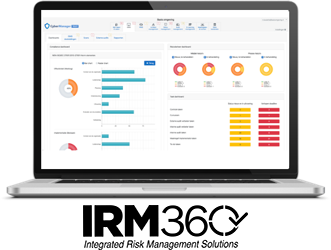ISO 42001
What is ISO 42001?
ISO 42001 is the international standard for Artificial Intelligence Management Systems (AIMS), designed to promote responsible AI governance, transparency, and risk management. It plays a crucial role in helping organizations develop, deploy, and maintain AI systems in an ethical and secure manner. ISO 42001 focuses not only on the technical aspects of AI governance, but also on policy, compliance, and risk assessment. By providing structured guidelines, best practices, and accountability frameworks, ISO 42001 helps organizations increase trust, mitigate AI-related risks, and align with evolving regulatory requirements.
AI Risks and the Role of ISO 42001
In today’s digital landscape, organizations increasingly rely on Artificial Intelligence (AI) for automation, decision-making, and data analysis. However, AI also introduces new risks, such as bias in algorithms, data privacy breaches, lack of transparency, and ethical concerns.
ISO 42001 plays a crucial role in helping organizations manage these AI-related risks by establishing best practices for AI governance, ethical implementation, and regulatory compliance.
Identifying and Managing AI Risks – ISO 42001 provides risk assessment frameworks to detect issues like algorithmic bias, security vulnerabilities, and ethical concerns.
Ensuring Responsible AI Use – The standard helps organizations implement AI fairness, transparency, and accountability measures, reducing unintended consequences.
Regulatory Compliance & AI Ethics – ISO 42001 aligns AI systems with global compliance requirements such as GDPR, ISO 27001, and AI Act regulations, ensuring privacy protection and security.
Collaboration with Industry Experts – By working with AI researchers, policymakers, and data scientists, ISO 42001 helps establish guidelines for trustworthy and secure AI applications.
Through ISO 42001, organizations can strengthen their AI systems against risks, promote ethical AI development, and build trust in artificial intelligence, ensuring a safe and responsible AI-powered future.

The future of ISO 42001
As Artificial Intelligence (AI) continues to evolve, integrating with technologies such as Internet of Things (IoT), cloud computing, and quantum computing, the need for robust AI governance and ethical AI deployment will only grow. ISO 42001 remains committed to supporting organizations in developing, managing, and scaling AI responsibly.
Moving forward, ISO 42001 will continue to adapt and expand its framework to address emerging AI challenges, including:
AI Ethics & Fairness – Strengthening guidelines on bias mitigation, explainability, and transparency in AI decision-making.
Regulatory Compliance – Helping organizations align with global AI regulations, such as the EU AI Act and GDPR.
Security & Risk Management – Enhancing AI security frameworks to prevent adversarial attacks and ensure data privacy.
AI & Sustainability – Promoting energy-efficient AI models and responsible AI usage to reduce environmental impact.
By fostering collaboration, knowledge-sharing, and best practices, ISO 42001 will continue to shape the future of trustworthy and responsible AI. Organizations implementing ISO 42001 can benefit from structured AI governance, regulatory alignment, and ethical AI deployment, ensuring a safer, more transparent, and innovation-driven AI ecosystem.
Error:
Object reference not set to an instance of an object. : at Umbraco.Web.PublishedContentExtensions.GetPropertyValue[T](IPublishedContent content, String alias, Boolean recurse, Boolean withDefaultValue, T defaultValue) at Umbraco.Web.PublishedContentExtensions.GetPropertyValue[T](IPublishedContent content, String alias) at ASP._Page_Views_MacroPartials_Highlights_cshtml.Execute() in d:\wwwroot\IRM360\www\Views\MacroPartials\Highlights.cshtml:line 8Choose IRM360
With IRM360, you are assured a secure and compliant future in a scalable, practical and cost-efficient way.
With our other management systems for Privacy, Business Continuity, Artificial Intelligence and Risk Awareness, among others, you can easily expand your control at your pace.
Contact us today for more information or request an online demo of our software.
Click here to request an online demo.

More about the IRM360 Management System?
Click here for more information!
We would love to get in touch.
Mail to: sales@irm360.nl or fill in the contact form.

